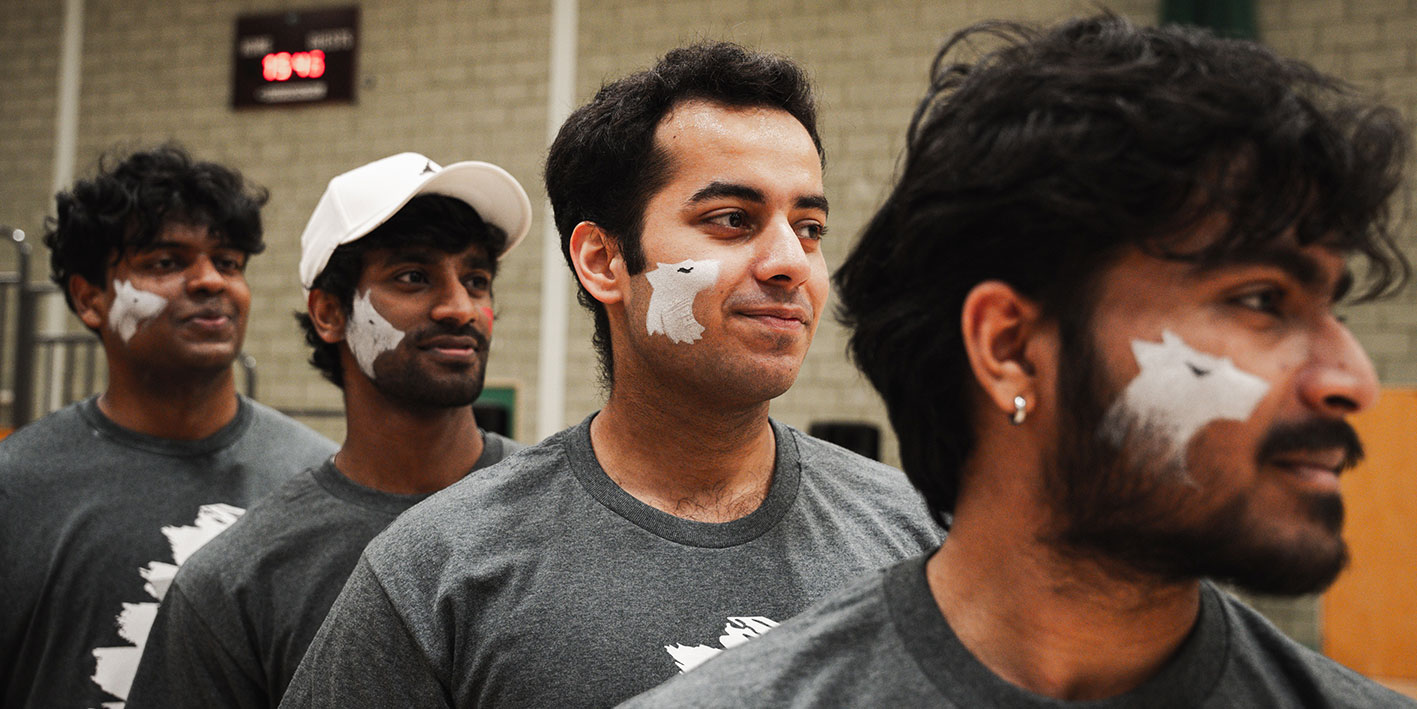
The Psychology Behind Star Wars
Dr Danny Hinton, Senior Lecturer in Psychology, takes a look at the psychology behind Star Wars following the release of The Last Jedi this week.
Mentoring relationships are a running theme throughout the Star Wars films. Whether it be Obi Wan's (all too brief) mentoring of Luke in the first film, or Luke's own mentoring of Rey in the upcoming instalment, the motif of a wise, experienced mentor providing support and guidance to their protégé is a recurring one. This mirrors the roles of mentors we have in our own lives in education, work, and less formal settings. These relationships can help us to build confidence and belief in ourselves. They can help us to derive more satisfaction from our work and in our personal lives, and can help us to prepare for major challenges, be they taking on new responsibilities in unfamiliar work settings, or conducting a daring raid on a fully armed and operational battle station.
A central message in Star Wars is the role of hope, Princess Leia's first spoken word in the chronology of the series. Hope is critically important for our psychological well-being. A lack of faith that we have the agency to improve our current situation almost inevitably leads to negative psychological outcomes such as depression and anxiety. In the context of the films, this is the hope that good will eventually triumph over evil. While the challenges we face are rarely as epic as those faced by the Rebel Alliance, hope is no less important.
Another key theme is that of family. To say that the Skywalker family is dysfunctional would be something of an understatement. However, the bond of family is what leads to Anakin Skywalker's eventual redemption. The familial bond is a powerful one, and can, over time, overcome all but the most serious of family issues. If the Skywalkers can survive disagreements on the scale of serial hand amputations, there is always the hope that families can reconcile their differences.

Quotes:
1. “Do or do not... there is no try.” — Yoda
Throughout the films, Yoda is the archetypal motivator of the main characters. A classic theory of motivation, Expectancy Theory, tells us that, in order to be motivated to achieve a goal, we must have some expectation that our efforts will lead to the outcome we desire. If you're trying to motivate someone to achieve a big, intimidating goal, research would suggest that telling them to try their best isn't an effective strategy. Rather, you should aim to foster their belief that, if they put the effort in, they can raise the metaphorical X-Wing from the swamp.
2. “Luminous beings are we. Not this crude matter.” — Yoda
Here, Yoda is referring to the nature of the relationship between the physical world and the Force, but there are parallels between this and our own consciousness. Our consciousness is what defines us as who we are. Though neuroscientists have spent the past two hundred years mapping the structures of the brain and their function, we are still a very long way from understanding how this crude grey and white matter can produce the experience of consciousness and existence. The brain is staggeringly sophisticated, and we've only just begun to scratch the surface of how it works.
3. "Someone has to save our skins. Into the garbage chute, fly boy." - Leia
Sometimes it takes a bold move to get out of a tight spot. A preference for bold behaviour has its roots in the personality trait extraversion. Those who score high on measures of extraversion tend to have a higher appetite for risk than others. They might choose more dangerous options, but it can frequently be the case that these gambles pay off. Of course, an extreme risk appetite can frequently lead to reckless behaviour, as there's always the risk that a bold move might land you in hot water (or even a trash compactor).
4. “Never tell me the odds.” — Han Solo
Sometimes the odds are against us, but we shouldn't necessarily let that stop us from trying to achieve our goals. The Theory of Planned Behaviour teaches us that the link between our intentions and subsequent action are heavily influenced by our beliefs, and our perceptions of the degree of control we have over the situation. Mental roadblocks like believing our chances of success are minimal can often prevent us from achieving our goals. Han clearly understands this. He realises that knowing that the chances of survival are slim won't help, so he chooses (quite rightly) to ignore them.
5. “You will find that many of the truths we cling to depend greatly on our own point of view.” — Obi-Wan Kenobi
Our own, subjective experience of the world is coloured by our perceptions and our preconceptions. In psychology, we try, as far as is practicable, to remove from the observations in our experiments the kinds of biases that we all have by virtue of being human. However, this is often easier said than done. This is very much the same in everyday life: the phenomenon of confirmation bias leads us to actively seek out information on a particular topic that supports our own world view, and to disregard things on that topic that contradict it. In the age of information, we are always only a few smartphone taps away from vast, vast amounts of information, not all of which is reliable. If we want to ensure that we aren't misled, we need constantly to be on our guard so that when we read claims on the internet - and on social media particularly - we evaluate them with a healthy level of objectivity and scepticism.
6. “Feel, don't think. Trust your instincts.” – Qui-Gon Jinn
While I might disagree with this statement in its purest form, having built a career in a field that relies primarily on robust evidence and logical reasoning, there is a grain to truth to what Qui-Gon is saying here: our brains have evolved in such a way that we are hard-wired to be able to make sense of novel situations quickly, which has helped us as a species to survive and thrive. For example, our physiological and psychological reactions to danger - the fight or flight response - can prepare us to encounter something or someone that might cause us harm in a way that we aren't able to achieve consciously through rational thought. If you happen to be walking through a dark alley late at night and are confronted by a mugger/angry drunk/rancor, trusting your instincts and running for it is probably a better bet than trying to think clearly.
7. “Who’s the more foolish, the fool? Or the fool who follows him?” — Obi- Wan Kenobi
In a work setting, it can be all too easy to blindly follow leadership along a dangerous path. It may seem like a good thing to be part of a team at work led by charismatic leader, in which there is harmony and a lack of conflict. However, the danger in this situation is the possibility of groupthink. Groupthink occurs when group members become so focused on maintaining harmony that they end up behaving irrationally. They fail to evaluate alternative options effectively, which frequently leads to the team pursuing a detrimental course of action. Questioning the leadership of your team can be difficult (doubly so if your boss can shoot lightning from his fingers), but having the courage to do so when it seems like you're on the road to ruin can potentially avoid disaster.
8. “Yeah, I’m responsible now, the price you pay for being successful.” — Lando Calrissian
Heavy is the head that wears the crown, as Lando found out to his detriment. Though many of us aspire to positions of power, fame and influence, these roles often come packaged with negatives that we don't appreciate. While occupational prestige and a sense of accomplishment can both be powerful motivators and drivers of self-esteem, the trade off for this tends to be greater work pressure and responsibility. While these are not inherently negative things, if they become too great to handle, they can lead to stress, anxiety, depression and, ultimately, burnout.
9. “All mentors have a way of seeing more of our faults than we would like. It’s the only way we grow.” — Padme
A vital aspect of the mentoring process is that your mentor is objective, honest and trustworthy. While these are undoubtedly desirably qualities within a mentor, it necessarily means that it's their responsibility to help you to identify your weaknesses. The key to development - both at work and in our personal lives - is self-awareness: if we aren't aware of our shortcomings, we can't grow, just as Padme says.
10. “Fear leads to anger. Anger leads to hate. Hate leads to suffering.” — Yoda
As well as being unpleasant for us, negative emotions can often have unintended consequences for those around us. For example, a frequent reaction to anxiety is to become angry. Our anger then, in turn, negatively affects those around us. It is important for us to be aware of how our negative emotions impact upon our work colleagues, friends, and family members. If we aren't, the danger is that this negative emotion breeds further negative emotion within them, and so the cycle continues. However, once you start down the dark path, it doesn't have to dominate your destiny: taking the time out to address these emotions, for example by practising mindfulness or talking to a therapist, can help to break the cycle.
For more information please contact the Corporate Communications Team.


/prod01/wlvacuk/media/departments/digital-content-and-communications/images-2024/240328-Varsity-Line-Up-Resized.jpg)
/prod01/wlvacuk/media/departments/digital-content-and-communications/images-18-19/220325-Engineers_teach_thumbail.jpg)
/prod01/wlvacuk/media/departments/digital-content-and-communications/images-2024/240404-Digital-Humanities-Training-Resized.jpg)
/prod01/wlvacuk/media/departments/digital-content-and-communications/images-2024/240320-Uzbekistan-Resized.jpg)
/prod01/wlvacuk/media/departments/digital-content-and-communications/images-2024/240229-The-Link-Resized.jpg)
/prod01/wlvacuk/media/departments/digital-content-and-communications/images-2024/240404-Pharmacy-Students-Resized.jpg)


